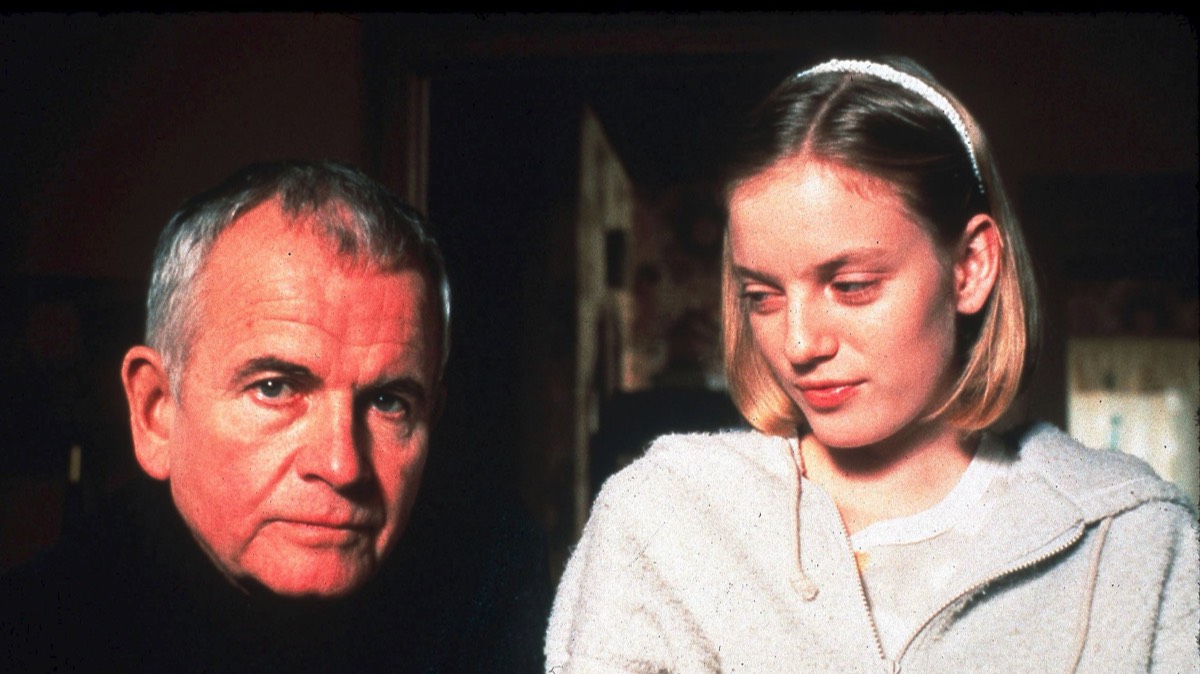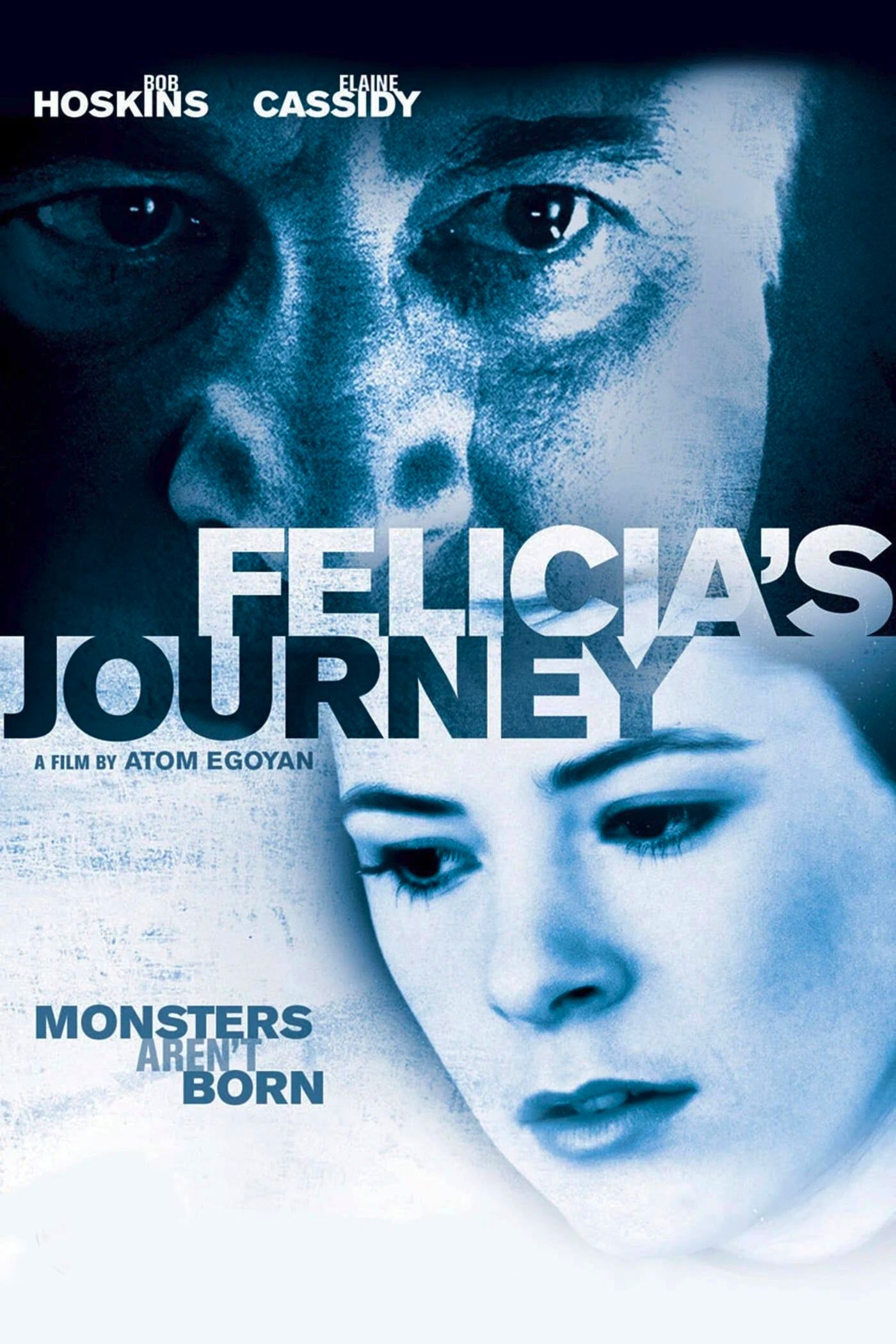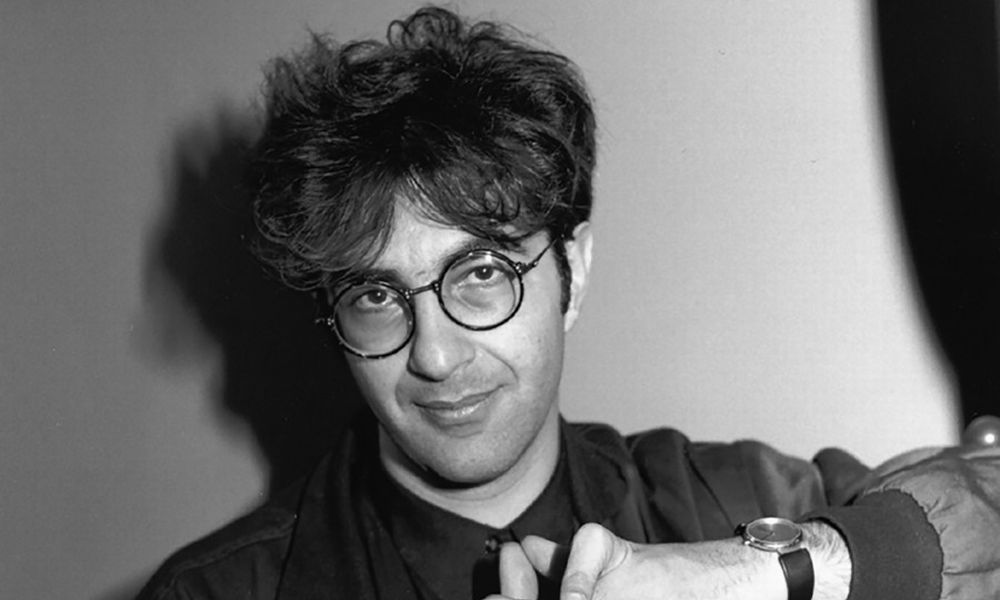"A stylish and highly assured filmmaker, Egoyan has produced work that combines self-reflexive meditations on the nature of film and video, examinations of psycho-sexual behaviour and a black, ironic sense of humor." - The Hollywood.com Guide to Film Directors, 2004
Atom Egoyan
Director / Screenwriter / Producer / Editor / Actor
(1960- ) Born July 19, Cairo, Egypt
(1960- ) Born July 19, Cairo, Egypt
Key Production Countries: Canada, France
Key Genres: Drama, Psychological Drama, Ensemble Film, Psychological Thriller, Family Drama, Thriller
Key Collaborators: Arsinee Khanjian (Leading Actress), Mychael Danna (Composer), Paul Sarossy (Cinematographer), Susan Shipton (Editor), David Hemblen (Leading Character Actor), Gabrielle Rose (Leading Character Actress), Linda Del Rosario (Production Designer), Elias Koteas (Character Actor), Bruce Greenwood (Leading Character Actor), Phillip Barker (Production Designer), Christopher Plummer (Leading Actor)
Key Genres: Drama, Psychological Drama, Ensemble Film, Psychological Thriller, Family Drama, Thriller
Key Collaborators: Arsinee Khanjian (Leading Actress), Mychael Danna (Composer), Paul Sarossy (Cinematographer), Susan Shipton (Editor), David Hemblen (Leading Character Actor), Gabrielle Rose (Leading Character Actress), Linda Del Rosario (Production Designer), Elias Koteas (Character Actor), Bruce Greenwood (Leading Character Actor), Phillip Barker (Production Designer), Christopher Plummer (Leading Actor)
"Egoyan is a remarkable and admirable figure. Of Armenian descent, he was born in Egypt, where he lived for a few years as a child before moving to western Canada. To be a Canadian filmmaker is, in the words of a movie on which Egoyan assisted, to exist “in the shadow of Hollywood.” And there is no country of which the ordinary American is more dismissive than Canada. But Egoyan has not simply made a fruitful career there, he has impressed the outside world—The Sweet Hereafter, his best-known film but not necessarily his best, won an Oscar nomination for directing (it succumbed to James Cameron and Titanic). Yet he does not seem to have been swayed away from his own course, which is quiet, introspective, rather wistful, and very fond of that delicate area where the imagination becomes the spirit." - David Thomson (The New Biographical Dictionary of Film, 2010)
"Fixated on quasi-therapeutic rituals of sorrow and processes of denial, the films of Atom Egoyan observe people who are forever held at one remove from themselves, and those closest to them, by the recorded image… He debuted with the hour-long Next of Kin (1984)… The film established what would become two major Egoyan themes: family dysfunction mediated and exacerbated by images, and willed self-delusion as a mechanism to defer grief." - Jessica Winter (The Rough Guide to Film, 2007)

The Sweet Hereafter (1997)
"Atom Egoyan hinges his metatextual cinema on themes of emotional and psychological displacement. While biographical readings are often suspect, it is easy - given how candid Egoyan is with personal details in interview - to see how his own background of displacement influences his films… It could be argued that he straddles two traditions of Canadian cinema. His success can be traced back to the early 1980s and the emergence of a group of Canadian filmmakers dubbed the 'Ontario New Wave' by Carole Desbarats… However, as Geoff Pevere has commented, Egoyan also sits comfortably with an older tradition of Canadian cinema in which characters are distinguished by their profound inertia and paralysing immersion in structures bigger than themselves." - Kevin Harley (Contemporary North American Film Directors, 2002)
"Atom Egoyan is one of Canada’s most acclaimed and influential filmmakers. Cerebral and unconventional, his films are often told in a non-linear style. They typically tackle such themes as personal and communal displacement, the alienating effects of media and technology, and the lingering effects of trauma and abuse… Egoyan’s films since Ararat have not achieved the same degree of critical success and awards recognition as his earlier work, and some of them have been outright maligned." - The Canadian Encyclopedia, 2018
"A multi-talented, idiosyncratic filmmaker, he often combines dark cynicism and irony with political and sexual themes, resulting in explosive films such as Speaking Parts (1989), Exotica (1994), and The Sweet Hereafter (1997)." - The Film Encyclopedia, 2012
"The formally adventurous and psychologically intricate films of renowned Canadian auteur Atom Egoyan unfold according to complex, time-scrambling structures that heighten their searing emotional impact. Exploring issues of identity (including his own Armenian heritage), loss, alienation, and technology, Egoyan’s films frequently revolve around people struggling to make sense of their own shattered sense of self in the wake of profound personal tragedies." - The Criterion Channel
"From his debut feature, Next of Kin (1984), he has been concerned with the power of imagery in contemporary society, and the manner in which individuals have become isolated and alienated in an increasingly voyeuristic and technology-fixated world… The talent displayed in his first features got him assignments directing episodes of the new Twilight Zone and Alfred Hitchcock Presents TV series." - Leonard Maltin's Movie Encyclopedia, 1995
"I think with all directors there are ideas that recur, at least for the ones that have creative control of their films." - Atom Egoyan
Selected Filmography
{{row.titlelong}}
GF Greatest Films ranking (★ Top 1000 ● Top 2500)
21C 21st Century ranking (☆ Top 1000)
T TSPDT R Jonathan Rosenbaum
21C 21st Century ranking (☆ Top 1000)
T TSPDT R Jonathan Rosenbaum
Atom Egoyan / Favourite Films
Beau travail (1999) Claire Denis, Citizen Kane (1941) Orson Welles, The Colour of Pomegranates (1969) Sergei Parajanov, 8½ (1963) Federico Fellini, Pather Panchali (1955) Satyajit Ray, Persona (1966) Ingmar Bergman, Tokyo Story (1953) Yasujiro Ozu, 2001: A Space Odyssey (1968) Stanley Kubrick, Ugetsu monogatari (1953) Kenji Mizoguchi, Vagabond (1985) Agnès Varda, Vertigo (1958) Alfred Hitchcock.
Source: Sight & Sound (2022)
Beau travail (1999) Claire Denis, Citizen Kane (1941) Orson Welles, The Colour of Pomegranates (1969) Sergei Parajanov, 8½ (1963) Federico Fellini, Pather Panchali (1955) Satyajit Ray, Persona (1966) Ingmar Bergman, Tokyo Story (1953) Yasujiro Ozu, 2001: A Space Odyssey (1968) Stanley Kubrick, Ugetsu monogatari (1953) Kenji Mizoguchi, Vagabond (1985) Agnès Varda, Vertigo (1958) Alfred Hitchcock.
Source: Sight & Sound (2022)
Atom Egoyan / Fan Club
Mike D'Angelo, Steve Gravestock, M.K. Raghavendra, Paul Verhoeven (Writer), Jonathan Rosenbaum, David Sterritt.
Mike D'Angelo, Steve Gravestock, M.K. Raghavendra, Paul Verhoeven (Writer), Jonathan Rosenbaum, David Sterritt.
"Fan Club"
These film critics/filmmakers have, on multiple occasions, selected this director’s work within film ballots/lists that they have submitted.
These film critics/filmmakers have, on multiple occasions, selected this director’s work within film ballots/lists that they have submitted.


